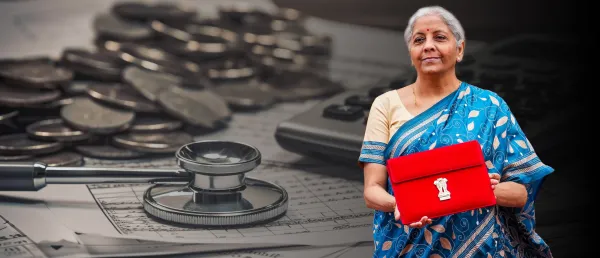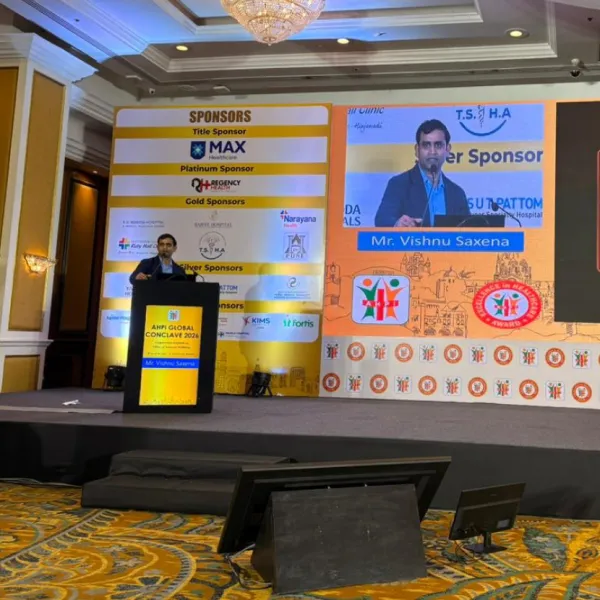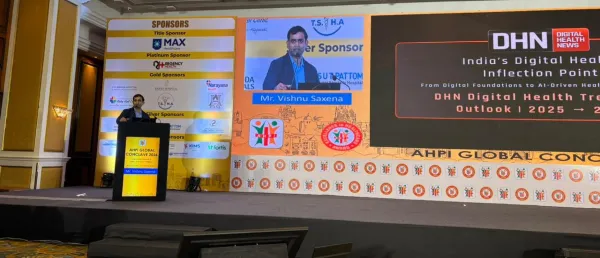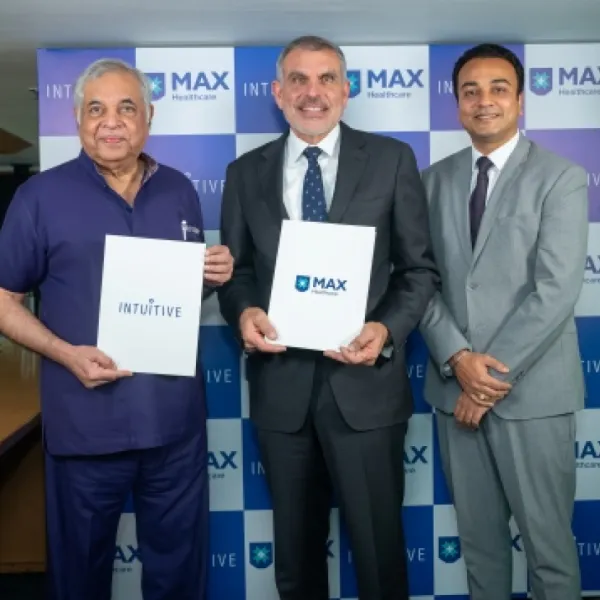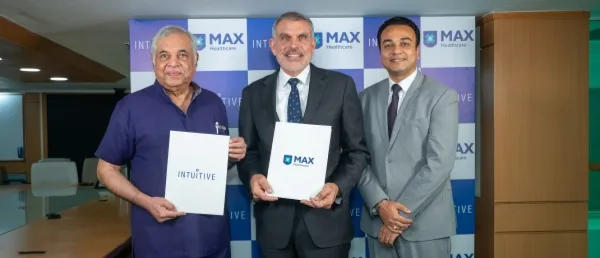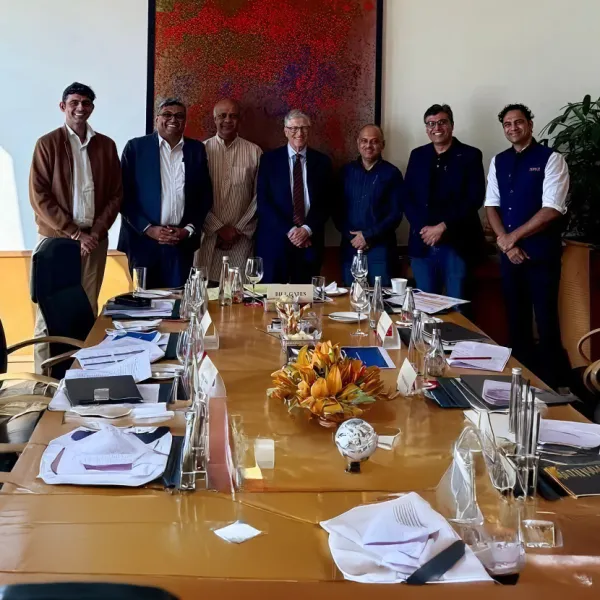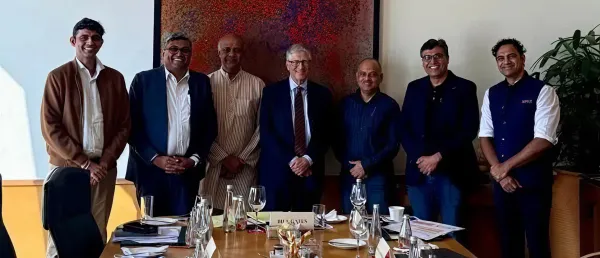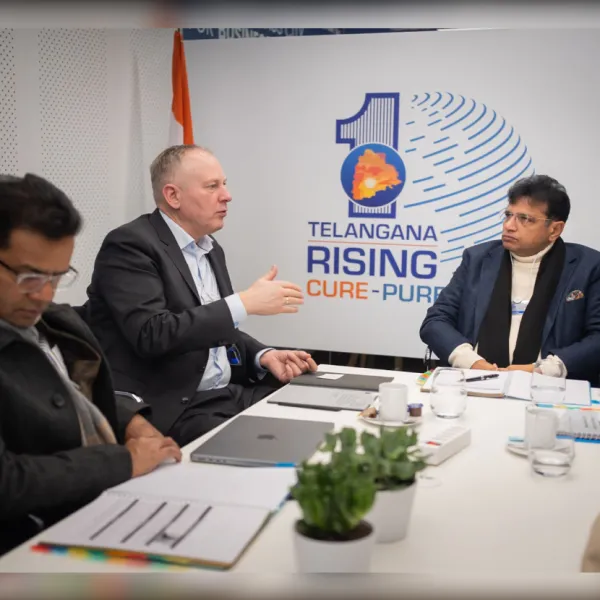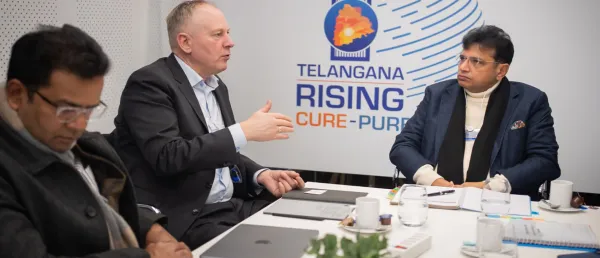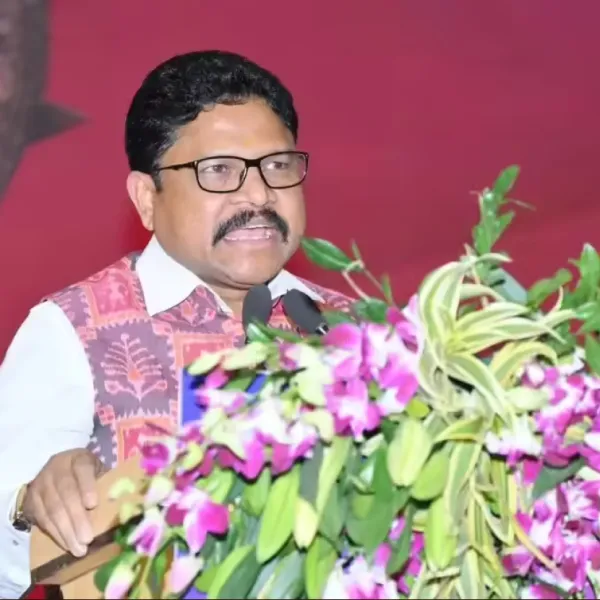“India Should Lead the Concept of Smart Healthcare for the World": A Panel’s Vision for Digital Health’s Future

At the latest DHN Forum Delhi panel on reimagining healthcare through digital health, leaders from across healthcare investment, strategy, and clinical operations gathered to debate the future of value creation, trust, and digital transformation in India’s evolving care systems.
Moderated by Vishnu Saxena, Founder & CEO, Digital Health News and ScaleHealthtech, the discussion featured Dr. Uma Nambiar, CEO, Indian Institute of Science Medical School Foundation and Chairperson, Digital Health India Association, Dr. Feby Abraham, EVP, Chief Strategy & Innovations Officer, Memorial Hermann Health System, and Dr. Alka Goel, Founding Partner, Alkemi Growth Capital.
Across a deeply insightful hour, the panel navigated the cultural, operational, and leadership imperatives needed to bring digital health into the mainstream, not just as a tool, but as an enabler of outcomes, trust, and patient-centered care.
Value Creation Beyond Buzzwords

Vishnu Saxena, Founder & CEO, Digital Health News and ScaleHealthtech honoring Dr. Feby Abraham, EVP, Chief Strategy & Innovations Officer, Memorial Hermann Health System
Trust: The Cornerstone of Digital Healthcare
Dr. Uma Nambiar reiterated that technology will only take India so far unless the sector confronts its trust deficit. “We need to bridge the trust deficit between every stakeholder in the healthcare ecosystem using technology to empower everybody, work together, and trust each other,” she said.
Her vision for 2030 was unambiguous: India should lead the world in smart healthcare. “It’s a possibility. We have the potential, we just need to act on it.”
Alka Goel echoed the sentiment, emphasizing patient experience as a critical aspect of trust-building. “Today, every patient thinks the hospital is out to fleece them,” she remarked. Goel advocated for digital tools that would improve transparency and patient outcomes while addressing India’s affordability paradox.

Dr. Uma Nambiar, CEO, Indian Institute of Science Medical School Foundation and Chairperson, Digital Health India Association
From Autonomous Cars to Autonomous Care
In a refreshing analogy, Dr. Feby Abraham compared healthcare’s digital transformation to the rise of smart driving features. “When electric cars and smart driving features came in, I said I’d be the last to switch. But I’ve changed my mind,” he admitted. “In Phoenix and San Francisco, driverless Ubers by Waymo are a reality. People trust them. Can that not occur in healthcare by 2030 India?”
He believes that much like autonomous vehicles, patient-centric, digitally-driven care models would gain trust through experience and infrastructure. “That’s the art of the possible,” he said.
The Data Challenge
The open-floor Q&A unearthed another critical issue: India’s lagging patient data infrastructure. Anushka, a data scientist attendee, pointed out that clinical records in Indian hospitals often aren’t even maintained, let alone organized for analysis. She asked how digital health could incorporate research readiness into its mandate.
Dr. Uma Nambiar responded with a crisp four-point solution: “Interoperability, de-identification of data, creation of indigenous data sets, and open access for researchers.”
Alka Goel added a pragmatic business reality to the debate. “There are solutions to do it, but it costs money. If it affects EBITDA, it won’t get approved at the board level. CEOs care about profitability, so CEOs are largely only interested in solutions.’’
Drawing on global models, Dr. Feby Abraham shared how the US launched Truveta, a consortium-driven data platform built by health systems. “We pooled de-identified patient data to create an analytics engine that supports pharma and biotech companies in clinical research. It’s dramatically reduced patient recruitment costs and improved trial relevance.”
He advocated for a similar collaborative consortium in India, with health systems leading the charge.
Dr. Nambiar concluded on a hopeful note, mentioning that the IAC (Indian Association of Clinical Research) is already working to connect these dots. “We will collaborate with everybody. It’s not for our use alone, it will be open for research scientists across the country.”

Dr. Alka Goel, Founding Partner, Alkemi Growth Capital.
Wrapping Up
The session wrapped up with moderator & DHN CEO Saxena thanking the panel for a forthright, practical, and inspiring dialogue. “We need to foster a culture of innovation and translation, where the business, clinical, and patient outcomes converge meaningfully,” he noted.
The conversations weren’t just futuristic conjecture; they reflected operational hurdles, financial realities, and the cultural rewiring India must undergo to scale digital health meaningfully. And through it all, one quote summed up the spirit of the day:
“India should lead the concept of smart healthcare for the world,” Dr. Uma Nambiar
A bold, necessary vision. Now it’s up to the industry to make it real.
In the words of Dr Uma Nambiar, “We have tremendous potential. We just need to act on it.”

The conversation opened with a pressing question: How can digital health solutions prove real value to healthcare systems, and how should that value be communicated?
Dr. Feby Abraham set the tone by addressing the nuances of value creation, especially in a market like India. “There’s a two-sided education required, how you translate specific ideas into value creation,” he explained. He drew from his own experience partnering with a company providing at-home cancer care, illustrating how solutions that seemed to divert patients away from hospitals could actually optimize clinical operations.
“When we piloted it, we found that weekend ER visits dropped from 15% to 2% because patients could call a nurse or get an urgent home visit instead of heading to the emergency room. It reduced wait times and freed up oncologists to see more new patients. That’s real value creation,” he emphasized.
But Abraham also acknowledged the challenge of explaining this value to stakeholders entrenched in fee-for-service mindsets. “The CFO needs to understand this language. The CSO, clinicians, everyone. It requires a full cultural transformation, with the CEO at the vanguard.”
Stay tuned for more such updates on Digital Health News










